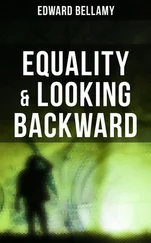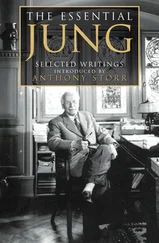"Probably," I said, "you have sometimes eccentric persons--'crooked sticks' we used to call them--who refuse to adapt themselves to the social order on any terms or admit any such thing as social duty. If such a person should flatly refuse to render any sort of industrial or useful service on any terms, what would be done with him? No doubt there is a compulsory side to your system for dealing with such persons?"
"Not at all," replied the doctor. "If our system can not stand on its merits as the best possible arrangement for promoting the highest welfare of all, let it fall. As to the matter of industrial service, the law is simply that if any one shall refuse to do his or her part toward the maintenance of the social order he shall not be allowed to partake of its benefits. It would obviously not be fair to the rest that he should do so. But as to compelling him to work against his will by force, such an idea would be abhorrent to our people. The service of society is, above all, a service of honor, and all its associations are what you used to call chivalrous. Even as in your day soldiers would not serve with skulkers, but drummed cowards out of the camp, so would our workers refuse the companionship of persons openly seeking to evade their civic duty."
"But what do you do with such persons?"
"If an adult, being neither criminal nor insane, should deliberately and fixedly refuse to render his quota of service in any way, either in a chosen occupation or, on failure to choose, in an assigned one, he would be furnished with such a collection of seeds and tools as he might choose and turned loose on a reservation expressly prepared for such persons, corresponding a little perhaps with the reservations set apart for such Indians in your day as were unwilling to accept civilization. There he would be left to work out a better solution of the problem of existence than our society offers, if he could do so. We think we have the best possible social system, but if there is a better we want to know it, so that we may adopt it. We encourage the spirit of experiment."
"And are there really cases," I said, "of individuals who thus voluntarily abandon society in preference to fulfilling their social duty?"
"There have been such cases, though I do not know that there are any at the present time. But the provision for them exists."
Chapter VI.
Honi soit qui mal y pense
Table of Contents
When we reached the house the doctor said:
"I am going to leave you to Edith this morning. The fact is, my duties as mentor, while extremely to my taste, are not quite a sinecure. The questions raised in our talks frequently suggest the necessity of refreshing my general knowledge of the contrasts between your day and this by looking up the historical authorities. The conversation this morning has indicated lines of research which will keep me busy in the library the rest of the day."
I found Edith in the garden, and received her congratulations upon my fully fledged citizenship. She did not seem at all surprised on learning my intention promptly to find a place in the industrial service.
"Of course you will want to enter the service as soon as you can," she said. "I knew you would. It is the only way to get in touch with the people and feel really one of the nation. It is the great event we all look forward to from childhood."
"Talking of industrial service," I said, "reminds me of a question it has a dozen times occurred to me to ask you. I understand that everyone who is able to do so, women as well as men, serves the nation from twenty-one to forty-five years of age in some useful occupation; but so far as I have seen, although you are the picture of health and vigor, you have no employment, but are quite like young ladies of elegant leisure in my day, who spent their time sitting in the parlor and looking handsome. Of course, it is highly agreeable to me that you should be so free, but how, exactly, is so much leisure on your part squared with the universal obligation of service?"
Edith was greatly amused. "And so you thought I was shirking? Had it not occurred to you that there might probably be such things as vacations or furloughs in the industrial service, and that the rather unusual and interesting guest in our household might furnish a natural occasion for me to take an outing if I could get it?"
"And can you take your vacation when you please?"
"We can take a portion of it when we please, always subject, of course, to the needs of the service."
"But what do you do when you are at work--teach school, paint china, keep books for the Government, stand behind a counter in the public stores, or operate a typewriter or telegraph wire?"
"Does that list exhaust the number of women's occupations in your day?"
"Oh, no; those were only some of their lighter and pleasanter occupations. Women were also the scrubbers, the washers, the servants of all work. The most repulsive and humiliating kinds of drudgery were put off upon the women of the poorer class; but I suppose, of course, you do not do any such work."
"You may be sure that I do my part of whatever unpleasant things there are to do, and so does every one in the nation; but, indeed, we have long ago arranged affairs so that there is very little such work to do. But, tell me, were there no women in your day who were machinists, farmers, engineers, carpenters, iron workers, builders, engine drivers, or members of the other great crafts?"
"There were no women in such occupations. They were followed by men only."
"I suppose I knew that," she said; "I have read as much; but it is strange to talk with a man of the nineteenth century who is so much like a man of to-day and realize that the women were so different as to seem like another order of beings."
"But, really," said I, "I don't understand how in these respects the women can do very differently now unless they are physically much stronger. Most of these occupations you have just mentioned were too heavy for their strength, and for that reason, largely, were limited to men, as I should suppose they must still be."
"There is not a trade or occupation in the whole list," replied Edith, "in which women do not take part. It is partly because we are physically much more vigorous than the poor creatures of your time that we do the sorts of work that were too heavy for them, but it is still more an account of the perfection of machinery. As we have grown stronger, all sorts of work have grown lighter. Almost no heavy work is done directly now; machines do all, and we only need to guide them, and the lighter the hand that guides, the better the work done. So you see that nowadays physical qualities have much less to do than mental with the choice of occupations. The mind is constantly getting nearer to the work, and father says some day we may be able to work by sheer will power directly and have no need of hands at all. It is said that there are actually more women than men in great machine works. My mother was first lieutenant in a great iron works. Some have a theory that the sense of power which one has in controlling giant engines appeals to women's sensibilities even more than to men's. But really it is not quite fair to make you guess what my occupation is, for I have not fully decided on it."
"But you said you were already at work."
"Oh, yes, but you know that before we choose our life occupation we are three years in the unclassified or miscellaneous class of workers. I am in my second year in that class."
"What do you do?"
"A little of everything and nothing long. The idea is to give us during that period a little practical experience in all the main departments of work, so that we may know better how and what to choose as an occupation. We are supposed to have got through with the schools before we enter this class, but really I have learned more since I have been at work than in twice the time spent in school. You can not imagine how perfectly delightful this grade of work is. I don't wonder some people prefer to stay in it all their lives for the sake of the constant change in tasks, rather than elect a regular occupation. Just now I am among the agricultural workers on the great farm near Lexington. It is delightful, and I have about made up my mind to choose farm work as an occupation. That is what I had in mind when I asked you to guess my trade. Do you think you would ever have guessed that?"
Читать дальше












